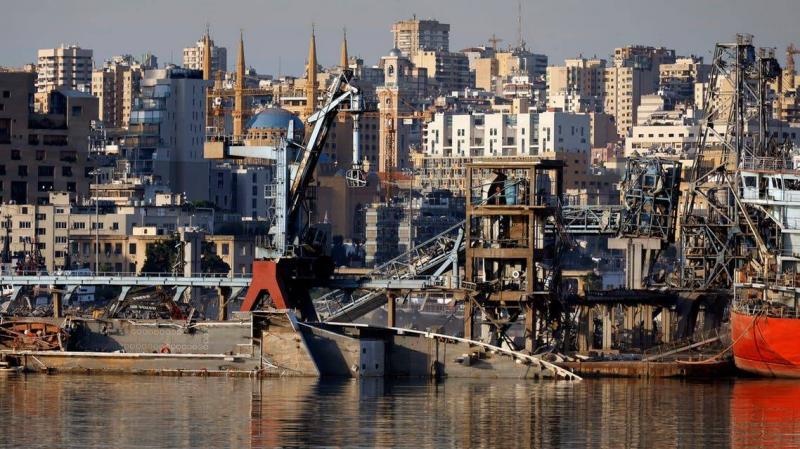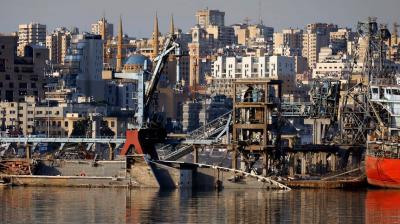After French Foreign Minister Jean-Yves Le Drian announced on Monday that there is a European political consensus to impose sanctions against Lebanese parties before the end of this month, French Minister of Foreign Trade Franck Riester confirmed after touring the Port of Beirut that his country stands with the Lebanese people. The French minister specifically mentioned the residents of Beirut and those affected by the tragedy of the port explosion, noting that Paris is working to deliver economic, social, and educational assistance to Lebanon.
France has allocated 400 million euros for the dock-area project at the devastated port. Riester emphasized that France is committed to its initiative and standing by the Lebanese people, asserting that politicians need to implement necessary reforms to pull the country out of its economic and financial crises, stressing that his remarks will reach President Michel Aoun.
This comes at a time when the European Union announced its aim to agree by the end of July on a legal framework for a sanctions regime targeting bickering Lebanese leaders, highlighting that the measure may not be implemented immediately. The EU, in an effort led by France, aims to intensify pressure on Lebanese politicians after 11 months since the onset of a crisis that has plunged the country into financial collapse, rampant inflation, power outages, and shortages of fuel and food. This is part of broader international efforts to push for the formation of a stable government capable of implementing critical reforms following a year marked by political chaos after the Beirut port explosion.
It is worth noting that Lebanon is experiencing regional and international movements seeking to end the current political stalemate that exacerbates the economic crisis, coupled with a political crisis due to the inability of political factions to agree on forming a new government led by Saad Hariri following the resignation of the previous government headed by Hassan Diab after the port explosion last August. Amid these crises, the World Bank has suggested that Lebanon's ongoing crisis, lasting more than a year and a half, is among the three worst crises in the world since 1850.




